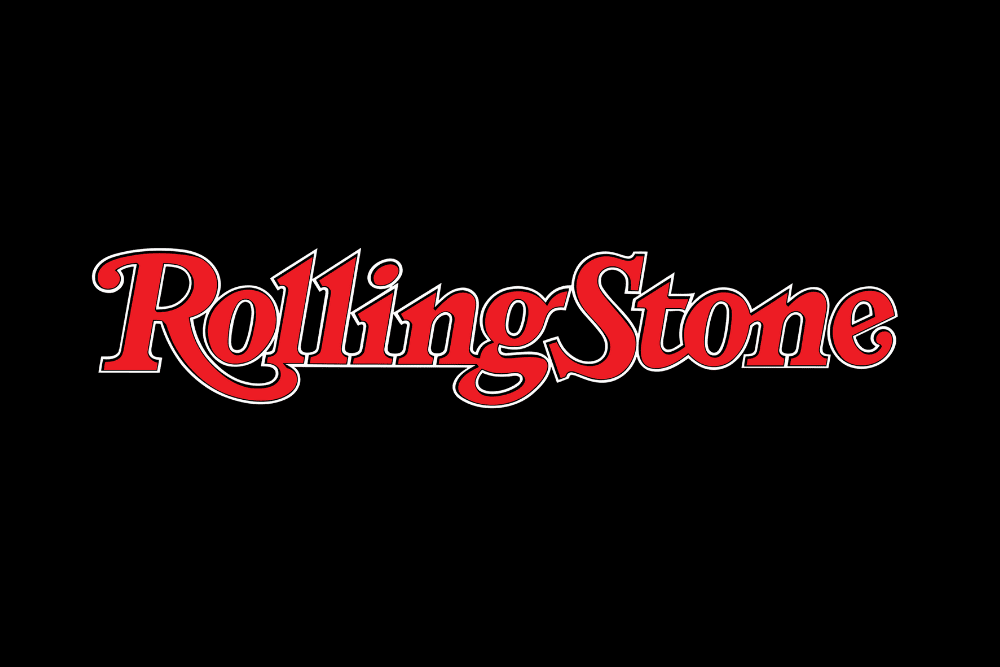When Shared Workspaces Become Hostile Environments
You joined a co-working space in Los Angeles to grow your business, network with other professionals, and enjoy the collaborative atmosphere. But what started as an ideal work environment has become a daily source of anxiety and discomfort due to unwelcome sexual advances, inappropriate comments, or hostile behavior from others in the shared space. The unique nature of co-working spaces—where multiple companies, freelancers, and independent contractors share common areas—can create confusion about your rights and who bears responsibility when harassment occurs. Whether the harassment comes from someone at another company, a fellow freelancer, or even staff members of the co-working facility itself, you have legal protections under both federal and California law.
💡 Pro Tip: Start documenting every incident immediately, including dates, times, witnesses, and specific behaviors—even if you’re unsure who the harasser’s employer is or whether they’re an independent contractor.
If co-working space harassment is making your professional life difficult, it’s time to take action. Let MSD Lawyers guide you through this complex process with our dedicated approach to ensuring safe and respectful work environments. Reach out today at 213-401-0823 or contact us for a consultation—because your right to a harassment-free workspace matters.
Your Sexual Harassment Rights in California’s Modern Workplaces
California’s Fair Employment and Housing Act (FEHA) provides some of the strongest workplace protections in the nation, and these protections extend to the evolving landscape of co-working spaces. Unlike federal law, which only covers employers with 15 or more employees, California prohibits harassment in all workplaces—even those with just one employee or independent contractor. This means that whether you’re a freelancer working alone, part of a small startup, or employed by a larger company using the co-working space, you have the right to work free from sexual harassment. Sexual harassment includes unwelcome sexual advances, requests for sexual favors, and other verbal or physical conduct of a sexual nature that creates an intimidating, hostile, or offensive working environment. A sexual harassment lawyer in Los Angeles can help you understand how these protections apply to your specific situation in a shared workspace.
The complexity of co-working spaces doesn’t eliminate employer responsibilities—it often expands them. Under Title VII and FEHA, employers have a duty to protect their employees not just from harassment by coworkers and supervisors, but also from third parties like clients, vendors, and in the context of co-working spaces, members of other companies sharing the space. This means if you report harassment by someone from another company to your employer, they cannot simply dismiss it as "not their problem." Your employer must take reasonable steps to address the situation, which might include speaking with the co-working space management, requesting different work arrangements, or even relocating to a different workspace if necessary. When evaluating behaviors considered sexual harassment, courts look at whether the conduct was severe or pervasive enough to create an abusive work environment from both the victim’s perspective and that of a reasonable person in similar circumstances.
💡 Pro Tip: California law requires employers with 5 or more employees to provide sexual harassment prevention training—ask your employer if they’ve fulfilled this requirement and ensure you’ve received your training.
Understanding the Legal Process for Co-Working Space Harassment Claims
Taking action against sexual harassment in a co-working environment requires understanding both the timeline constraints and the multiple parties who may be involved. In California, you generally have three years from the date of the last incident to file a complaint with the California Civil Rights Department (CRD), though it’s crucial to act quickly to preserve evidence and witness testimony. The process becomes more nuanced in co-working spaces because multiple entities may share liability—your employer, the harasser’s employer, and potentially the co-working space operator if their employees participated in or failed to address known harassment. Working with a sexual harassment lawyer in Los Angeles helps ensure you meet all deadlines and pursue claims against all responsible parties.
- Document and report the harassment immediately to your employer in writing, even if the harasser works for a different company
- File a complaint with your company’s HR department and request they investigate and take protective action
- Report the behavior to co-working space management, as they may have policies requiring them to address harassment on their premises—some spaces in downtown Los Angeles have already implemented specific anti-harassment protocols following increased complaints
- Contact the CRD at 800-884-1684 to file a formal complaint within three years (shorter if pursuing federal claims through the EEOC)
- Obtain a "Right to Sue" letter from the CRD or EEOC before filing a lawsuit in court
- Consider reporting to law enforcement if the harassment involves assault, threats, or other criminal behavior—the LAPD has specialized units trained in workplace violence cases
💡 Pro Tip: Keep copies of all communications about the harassment in a personal email or cloud storage account you control—not on company devices or accounts that could be restricted if your employment situation changes.
How a Sexual Harassment Lawyer in Los Angeles Can Navigate Co-Working Complexities
The shared nature of co-working spaces creates unique legal challenges that require experienced legal guidance to navigate successfully. Unlike traditional office harassment cases, co-working space incidents often involve questions about which employer bears responsibility, whether the co-working space operator has liability for maintaining a safe environment, and how to pursue remedies when the harasser is an independent contractor without a traditional employer. MSD Lawyers understands these complexities and has developed strategies for holding all responsible parties accountable. Their approach includes investigating the relationships between all parties, identifying applicable insurance coverage, and pursuing compensation through multiple channels when necessary. A sexual harassment lawyer in Los Angeles with experience in these modern workplace arrangements can identify creative solutions, such as pursuing claims against the co-working space under premises liability theories if they knowingly allowed harassment to continue.
Successful resolution of co-working space harassment claims often requires a multi-faceted approach that goes beyond traditional employment law remedies. While victims may be entitled to compensation including back pay for lost promotions or termination, front pay, medical expenses for therapy or counseling, and damages for emotional distress, the path to obtaining these remedies may involve negotiations with multiple insurance carriers and legal teams. MSD Lawyers recognizes that each co-working space harassment case presents unique challenges—from determining whether independent contractors can be held personally liable for their harassment to establishing whether a co-working space’s failure to implement anti-harassment policies constitutes negligence. Their comprehensive approach ensures that victims receive the full compensation they deserve while sending a clear message that harassment will not be tolerated in any modern workplace setting.
💡 Pro Tip: Request copies of the co-working space’s member agreements and codes of conduct—these documents often contain anti-harassment provisions that create additional legal obligations and remedies.
Unique Challenges of Proving Harassment in Shared Workspaces
Co-working spaces present distinct evidentiary challenges that don’t exist in traditional office environments. Unlike a conventional workplace where HR can easily identify employees and review security footage, co-working spaces often have transient populations, limited surveillance in common areas to protect member privacy, and unclear reporting structures. These factors can make it crucial to gather evidence immediately and comprehensively. According to the EEOC Enforcement Guidance on Harassment in the Workplace, harassment must be evaluated based on the totality of circumstances, which in co-working spaces includes the unique power dynamics and professional relationships that develop in these environments. A sexual harassment lawyer in Los Angeles familiar with these venues knows to look for evidence in member directories, event attendance lists, and communication platforms specific to the co-working community.
Digital Evidence in Modern Workspaces
Many co-working spaces use digital platforms for member communication, event planning, and space booking, creating digital footprints that can serve as crucial evidence in harassment cases. Slack channels, member apps, and social networking features within co-working platforms may contain evidence of inappropriate messages, patterns of unwanted contact, or witnesses to harassment incidents. However, this evidence can be ephemeral—many platforms automatically delete messages after a certain period, or the harasser may block you or leave the co-working space, making evidence inaccessible. This is why immediate action to preserve evidence, including screenshots and downloads of relevant communications, becomes essential in building a strong case.
💡 Pro Tip: Use your smartphone to photograph or record (where legally permitted) any physical evidence of harassment, such as inappropriate notes left at your workspace or offensive materials displayed in common areas.
When Multiple Companies Share Liability for Workplace Harassment
One of the most complex aspects of co-working space harassment involves determining liability when multiple entities could be responsible. California employment law recognizes that employers cannot escape liability simply because harassment occurred in a shared space or involved employees of other companies. Joint employer relationships, where multiple companies share control over working conditions, are increasingly common in co-working environments and can expand the number of potentially liable parties. For instance, if a startup in a co-working space regularly collaborates with another company’s employees on projects, both companies might share responsibility for addressing harassment between team members. A sexual harassment lawyer in Los Angeles can analyze these relationships to identify all sources of potential compensation and ensure no responsible party escapes accountability.
Co-Working Space Operator Responsibilities
While co-working space operators often position themselves as mere landlords, California law may impose greater responsibilities when they maintain control over the work environment and establish community standards. If a co-working space markets itself as providing a "safe, professional community" or "curated membership," they may have assumed a duty to screen members and respond to harassment complaints. Some operators in the Arts District and Silicon Beach have already faced lawsuits for failing to address known harassers who targeted multiple members. Additionally, if co-working space employees—such as community managers or event coordinators—participate in or ignore harassment, the operator faces direct liability as an employer. Understanding these expanded theories of liability can significantly increase the resources available for compensating harassment victims and creating safer shared workspaces.
💡 Pro Tip: Review the co-working space’s marketing materials and member testimonials—promises about community safety and professional standards can create legal obligations that support your harassment claim.
Frequently Asked Questions
Common Legal Concerns About Co-Working Space Harassment
Navigating sexual harassment claims in co-working spaces raises unique questions that traditional workplace harassment cases don’t typically encounter. Understanding your rights and options in these modern work environments is crucial for protecting yourself and pursuing appropriate remedies.
💡 Pro Tip: Don’t wait for "enough" incidents to accumulate—even a single severe incident of sexual harassment can be actionable under California law.
Next Steps After Experiencing Harassment
Taking action after experiencing sexual harassment in a co-working space requires careful consideration of multiple factors, from preserving evidence to understanding which entities to notify and when to seek legal counsel.
💡 Pro Tip: Create a detailed timeline of events while your memory is fresh—include seemingly minor incidents that establish a pattern of behavior.
1. Can I sue for sexual harassment if the harasser is a freelancer without a traditional employer?
Yes, you have several legal options even when the harasser is an independent contractor. While you cannot pursue a traditional employment law claim against a non-existent employer, you can potentially file a civil lawsuit directly against the individual for sexual harassment, assault, or intentional infliction of emotional distress. Additionally, if the co-working space failed to respond appropriately to complaints about the freelancer’s behavior, they may face liability. A sexual harassment lawyer in Los Angeles can help you explore all available legal avenues, including whether the freelancer’s clients could be liable if the harassment occurred during business activities.
2. What if my employer says they can’t control what happens in the co-working space common areas?
Your employer cannot avoid responsibility simply because harassment occurs in shared spaces. Under both federal and California law, employers must take reasonable steps to protect employees from known harassment, regardless of where it occurs during work activities. This might include requesting a different workspace, adjusting your work schedule, confronting the harasser’s employer, or even terminating the co-working space membership if necessary. If your employer refuses to act after you report harassment, they may face liability for failing to prevent ongoing harassment.
3. How is compensation calculated for sexual harassment in a co-working space setting?
Compensation in co-working space harassment cases follows similar principles to traditional workplace claims but may include additional damages unique to these environments. You may recover economic damages like lost wages if you had to leave the co-working space and lost networking opportunities or clients, medical expenses for therapy, and costs of relocating to a new workspace. Non-economic damages compensate for emotional distress, anxiety, and loss of professional reputation within the co-working community. In cases involving particularly egregious conduct or an employer’s reckless indifference to harassment, punitive damages may also be available.
4. Should I report harassment to co-working space management even if they’re not my employer?
Yes, reporting to co-working space management creates an important paper trail and may trigger their obligation to address the harassment. Many co-working spaces have member agreements that prohibit harassment and allow them to revoke memberships for violations. Document your report in writing and keep copies of all responses. If management fails to act and harassment continues, this evidence strengthens potential claims against the co-working space for negligent supervision or premises liability. Some spaces have formal grievance procedures that you should follow while simultaneously pursuing remedies through your employer.
5. What timeline should I expect for resolving a co-working space harassment claim?
Co-working space harassment cases often involve a more complex timeline than traditional workplace claims due to multiple potentially liable parties. Initial investigation and evidence gathering typically takes 1-3 months, especially when identifying all responsible parties. Filing with the CRD and obtaining a Right to Sue letter can take 6-12 months. If litigation becomes necessary, cases involving multiple defendants in co-working situations may take 18-24 months to resolve, though many settle earlier through negotiation. Working with an experienced sexual harassment lawyer in Los Angeles who understands these multi-party dynamics can help expedite resolution by pursuing parallel tracks against different defendants.
Work with a Trusted Sexual Harassment Lawyer
When sexual harassment invades your professional space, whether in a traditional office or modern co-working environment, you deserve compassionate and effective legal representation. The evolving nature of workplaces requires attorneys who understand both established employment law and emerging liability theories applicable to shared workspaces. MSD Lawyers brings comprehensive experience handling sexual harassment cases across various work environments, from corporate offices to creative co-working spaces throughout Los Angeles. Their team recognizes that each situation is unique and requires a tailored approach to achieve justice. If you’re facing sexual harassment in your workplace, don’t let confusion about co-working space dynamics prevent you from asserting your rights—contact a sexual harassment lawyer in Los Angeles who can navigate these complexities and fight for the compensation and workplace changes you deserve.
Don’t let co-working space harassment weigh you down—MSD Lawyers is here to lend a hand. Take the first step towards a respectful workplace by reaching out at 213-401-0823 or contact us for guidance. Your peace of mind is just a call away!













